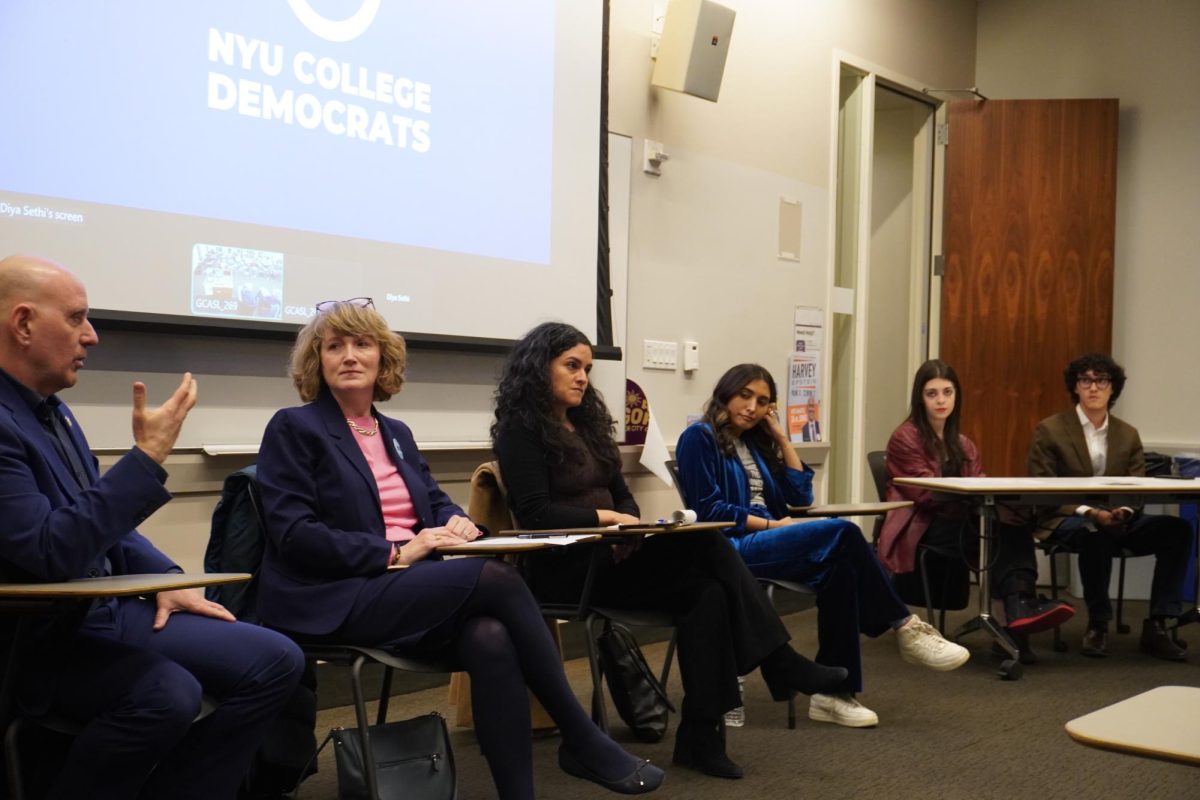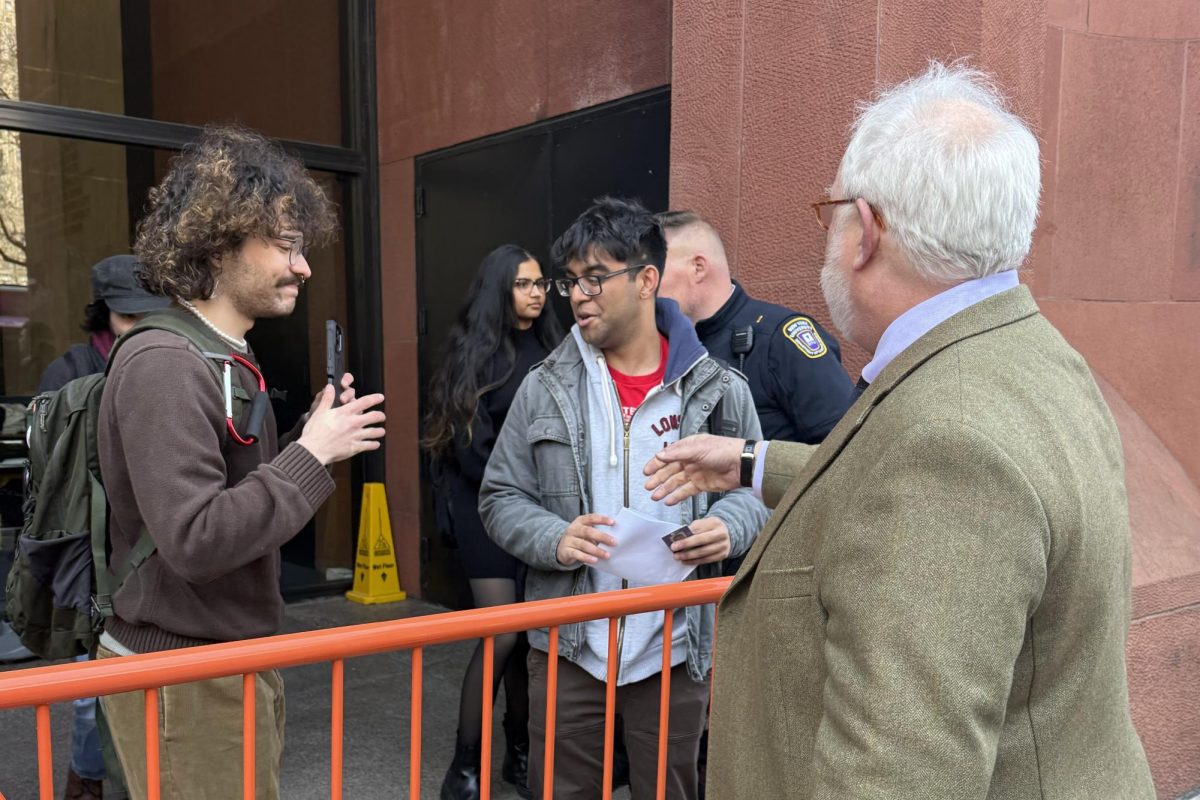President Donald Trump has selected five NYU School of Law alumni to serve prominent positions in his administration, where they will oversee federal work in areas such as cybersecurity, economic growth and international development. Two alumni are already serving in office, while three are nominated and waiting for approval by the U.S. Senate.
Here’s what each of them has in store in their respective positions.
Josh Gruenbaum
Josh Gruenbaum, who earned a dual degree from NYU Law and the Stern School of Business in 2016, was appointed as commissioner of the Federal Acquisition Service in the U.S. General Services Administration to guide the government to acquire the best goods and services.
Gruenbaum has been an active member of Trump’s Federal Task Force to Combat Antisemitism, where he is involved in investigating reported antisemitic incidents across 10 universities — including NYU. Recently, the task force removed $400 million funding from Columbia University and reviewed nearly $9 billion in contracts and grants at Harvard University over their alleged failure to address antisemitic incidents on their respective campuses.
“If it’s a privilege to do business with the federal government, you better be acting in the fashion that this administration and the American people have voted in,” Gruenbaum told Jewish Insider in an interview on Thursday. “This administration does not tolerate hate in the form of antisemitism.”
Since stepping into the position in January, Gruenbaum has met with executives from the 10 highest-paid government consultancies to ensure that their agendas align with the Trump administration’s priority of eliminating the $36 trillion national debt by removing inessential consulting contracts.
Benjamin Black
Benjamin Black was nominated by Trump to serve as the chief executive officer of the U.S. International Development Finance Corporation, a federal agency focused on financial support for lower and middle-income countries. Black, who graduated from NYU Law in 2020, vowed to implement a “pro-market” initiative, where he aims to channel nearly $40 billion of the U.S. Agency for International Development’s budget to invest in foreign developments that would generate the most revenue for American interests.
“If we are going to spend money abroad, let’s do so with an investment-driven model,” Black co-wrote with tech entrepreneur Joe Lonsdale in a January essay.
Black also backed Trump’s mission of annexing Greenland, stating that he will lead the agency to develop infrastructure for mining projects on the island. As the son of Apollo Global Management co-founder Leon Black, his financial industry connections were seen as a primary reason for being selected — potentially helping the agency attract funds from private equity, hedge funds and international investors.
In 2024, the IDFC sent over $12 billion to projects in energy, health and small business support in countries including Turkey and Ecuador. The Trump administration has repeatedly criticized USAID for its “waste and abuse” practices that support “malicious” projects, claiming the department spends $1.5 million on diversity initiatives in Serbia and $2 million on gender affirming activism in Guatemala.
Jacob Helberg
Trump nominated Jacob Helberg to lead the State Department’s foreign policy initiatives in economics, sciences and resource security as the undersecretary of state for economic growth, energy and the environment.
Helberg, a senior technology advisor at Palantir Technologies, has been known as the “China hawk” due to his strong stance against China’s growing influence in the United States and was previously a member of the U.S.-China Economic and Security Review Commission. He called TikTok a “weapon of war” used by the Chinese Communist Party to promote its propaganda, and he founded the Hill and Valley Forum to gather venture capitalists and lawmakers who see the rise of China’s power as a threat.
Helberg received a dual degree from NYU Law and the Tandon School of Engineering in cybersecurity risk and management in 2020. The next year, he released a book about global cyber policies.
“NYU’s MSCRS program connected me to an enormously talented community of practitioners and scholars,” Helberg said in a 2021 interview with the university. “Several of my peers became good friends and immeasurably enriched my views on complex cybersecurity issues ranging from privacy protections to the structure of American law.
The candidate also rooted for Trump’s efforts to combat antisemitism amid the administration’s crackdown on antisemitic incidents across college campuses, describing Trump as “by far the most pro-Israel president in history.”
Sean Cairncross
Sean Cairncross was selected as the national cyber director, a position that aims to initiate cost-effective programs and policies “to improve cybersecurity posture,” including data protection and international cyberspace practices.
Cairncross — who graduated from NYU Law in 2001 — was the former chief operating officer at the Republican National Committee from 2015 to 2016 and returned to the committee last year to monitor spending during the presidential campaign. He also served as the deputy assistant to Trump during his first administration, overseeing policy advisory and communication with government agencies. He has not held a formal role in cybersecurity.
“The threat to our nation and its people from adversaries such as China, Russia, Iran and North Korea in the cyber domain has never been more pronounced,” tech investor Michael Steel said in a statement congratulating Caincross. “The leadership of the national cyber director has seldom been more critical, and Sean has the skills and relationships that will allow him to excel in this office.”
Cairncross also worked as the CEO of the Millennium Challenge Corporation, an independent foreign aid agency founded by the U.S. Congress in 2004 to collaborate with 47 developing countries, funding projects in sectors like health care and education to promote economic growth and to ensure that the “American people are getting a good return on their investment.”
Derek Theurer
Derek Theurer currently serves as the counselor to the secretary at the U.S. Department of the Treasury, where he provides “legal and policy advice” to the secretary and other senior government officials.
Theurer, who graduated from NYU Law with a Master of Laws in tax law in 2012, was also nominated to be deputy undersecretary of the Treasury last week, furthering his involvement within the department.
Before this role, he served as the senior policy advisor to House Speaker Mike Johnson, focusing on tax, trade and financial services. He was also the chief tax counsel for the House Committee on Ways and Means, a committee that’s responsible for shaping economic legislation relating to tax, tariffs and social service programs.
During the first Trump administration, Theurer was the senior tax counsel in the Senate and was instrumental in creating the Tax Cuts and Jobs Act of 2017 that lowered corporate tax rates and provided temporary tax cuts.
Contact Amanda Chen at achen@nyunews.com.




























































































































































